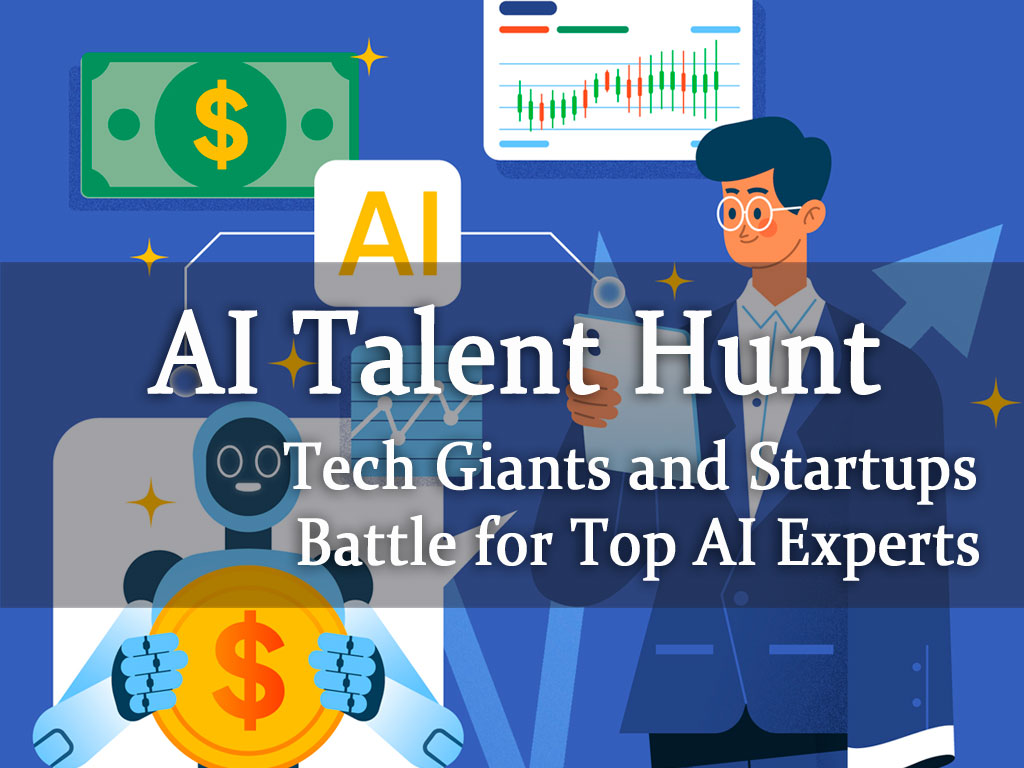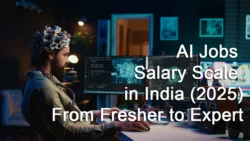In the rapidly evolving landscape of artificial intelligence (AI), a fierce competition has emerged among tech giants and AI startups to secure the world’s top AI talent. This “AI talent Hunt” is characterized by record-breaking salaries, aggressive poaching, and strategic expansions into talent-rich regions like Europe and beyond. As AI continues to drive innovation across industries, the demand for skilled professionals—particularly those with expertise in large language models (LLMs)—has reached unprecedented levels, reshaping the tech industry and raising questions about the sustainability of this intense competition.
Table of Contents
The Driving Force Behind the Talent Hunt
The AI market is experiencing a boom, with global revenues projected to surpass $500 billion by 2024, according to the International Data Corporation (IDC). The success of AI-driven technologies, such as OpenAI’s ChatGPT, has energized investors and fueled funding for AI startups, intensifying the demand for talent capable of developing cutting-edge solutions. This demand is particularly acute for professionals skilled in LLMs, which power advanced AI applications like lifelike chatbots and generative models. With fewer than 500 individuals worldwide estimated to have the expertise to build frontier AI models, companies are in a race to secure these rare talents.
High Salaries and Aggressive Poaching
The financial stakes in the AI talent Hunt are staggering. Candidates with LLM experience can command salaries exceeding $1 million per year. For example, The Daily Upside reported that the median salary for six individuals offered jobs at OpenAI was $925,000, while Meta’s 344 machine learning and AI engineers earned a median of $400,000. In some cases, sign-on bonuses alone have reached $100 million, as seen in Meta’s efforts to lure senior staff from rivals, including Apple’s top AI models executive, Ruoming Pang.
Poaching has become a hallmark of this competition. Meta’s CEO Mark Zuckerberg has been reported to personally email researchers at Google’s DeepMind AI unit, enticing them with lucrative offers. Similarly, Mustafa Suleyman, a co-founder of DeepMind, recently joined Microsoft, while DoorDash hired senior employees from Standard AI to bolster its voice-ordering AI capabilities. These high-profile moves underscore the ruthless nature of the talent Hunt, with companies acting like sports teams vying for star players.
Europe: A New Battleground
While Silicon Valley remains a key hub, Europe has emerged as a significant battleground in the AI talent Hunt. The success of ChatGPT has spurred investment in European AI startups, such as Cohere, Anthropic, and Mistral AI, which are actively recruiting from established players like Google DeepMind. Cohere, for instance, has hired key personnel, including Phil Blunsom, who spent seven years at DeepMind, and Sebastian Ruder, strengthening its team. Mistral AI, founded by former DeepMind staff, raised $415 million in December, achieving a multi-billion-dollar valuation.
Startups are leveraging attractive incentives to compete with tech giants. ElevenLabs, a London-based AI audio firm, offers stock options, generous salaries, and fully remote work options, planning to double its headcount to 100 after raising $80 million in funding. Bioptimus, another startup founded by ex-DeepMind staff, secured $35 million in February. These companies appeal to talent by offering greater influence over a company’s direction compared to larger organizations like Google.
To retain talent, established players are also stepping up. DeepMind, acquired by Google in 2014, distributed restricted stock worth millions to senior researchers in 2024 to counter the allure of startups. Meanwhile, major AI companies are expanding their presence in Europe to tap into the region’s talent pool. OpenAI opened its first international office in London in 2023, followed by another in Dublin, while Cohere established a UK office and plans to double its headcount to 50.
A Global Competition
The AI talent Hunt is not limited to the US and Europe. China is increasingly involved, with Silicon Valley becoming a battleground for Chinese researchers. Bloomberg reports that Beijing is closely monitoring this trend, as the competition for AI talent takes on a global dimension. This international race adds complexity, as countries and companies vie for a limited pool of experts capable of advancing AI technologies.
Strategies to Attract and Retain Talent
Companies are employing a range of strategies to attract and retain AI talent. In addition to high salaries and bonuses, startups are offering equity stakes and the opportunity to shape a company’s direction, which can be more appealing than roles at larger firms. For example, Thomas Clozel, an early investor in Bioptimus, noted that startups provide talent with a greater stake in success compared to Big Tech. Meanwhile, established companies like DeepMind are using restricted stock and other financial incentives to retain their top researchers.
Universities and research institutions are also playing a role. DeepMind has partnered with UCL’s Department of Computer Science to deliver a Master’s-level training module, positioning itself to attract emerging talent. Other companies are encouraged to build similar relationships with academic institutions to gain access to skilled graduates.
Implications and Concerns
The AI talent Hunt is driving rapid innovation, but it also raises significant concerns. The concentration of talent in a few dominant companies could limit diversity in AI development, potentially stifling innovation in the long term. Additionally, the high salaries and aggressive poaching are creating a brain drain from other sectors, including government and academia, which struggle to compete with Big Tech’s financial offers. For instance, government regulators are finding it difficult to attract AI experts, impacting their ability to oversee the industry effectively.
The global nature of the competition further complicates the landscape. As countries like China vie for AI talent, geopolitical tensions may influence the flow of expertise, potentially affecting international collaboration in AI research. Moreover, the intense focus on a small pool of experts raises questions about the sustainability of current hiring practices and their impact on the broader tech workforce, which has faced layoffs since 2022.
Looking Ahead
As the demand for AI expertise continues to grow, the competition for talent shows no signs of abating. This relentless pursuit of top AI professionals is driving innovation but also raises concerns about the concentration of talent in a few dominant companies and the potential brain drain from other sectors. The global contest, involving regions like Europe and China, adds another layer of complexity to an already intense competition.
The AI talent Hunt is a defining feature of the current tech landscape, with profound implications for the future of artificial intelligence and the broader economy. As companies continue to vie for the best and brightest minds, the landscape of AI development is likely to see accelerated progress, but also increased inequality in talent distribution. The long-term impact of this Hunt remains uncertain, but it is clear that the race for AI talent will shape the future of technology for years to come.







